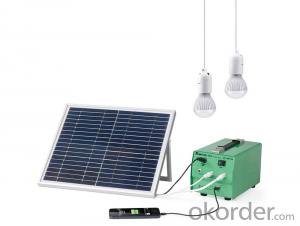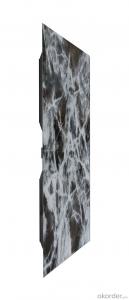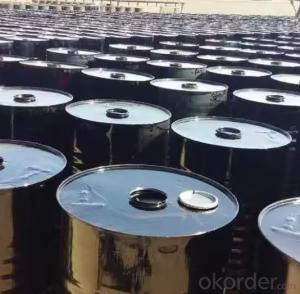Solar Lighting System - DC >10W Solar Lighting System
- Loading Port:
- Guangzhou
- Payment Terms:
- TT OR LC
- Min Order Qty:
- 50 set
- Supply Capability:
- 10000 set/month
OKorder Service Pledge
OKorder Financial Service
You Might Also Like
Features:
1.Solar panel : crystalline silicon 10W18V, efficiency>=16%;
2.Integrated power supply box :Built-in controller 3A12V and maintenance-free lead-acid battery 7AH12V;
3.LED lamp:3W12V,with 5M wires and switch, 2 sets;
4.Charing cable : 1 x USB cable 10-in-1;
5. Charging and using time: The empty battery could be full after charged 6hours. After the battery is full, 2 LED lamps could work 10hours;
6.Warranty: Panel 10 years; Battery 1 year; others 1 year.
| Item number | XT802A-10W |
| Solar panel | Poly crystalline 10W 18V |
| Battery | 7AH12V lead-acid battery |
| LED lamp | 3watt, >50000 hours |
| cable of led lamp | 5 m |
| Weight | 5.5kg/set |
| Output | DC 12V and DC 5V |
| Working Time @ full battery | 2 LED lamps totally using 10hours. |
| Warranty | 1 years |
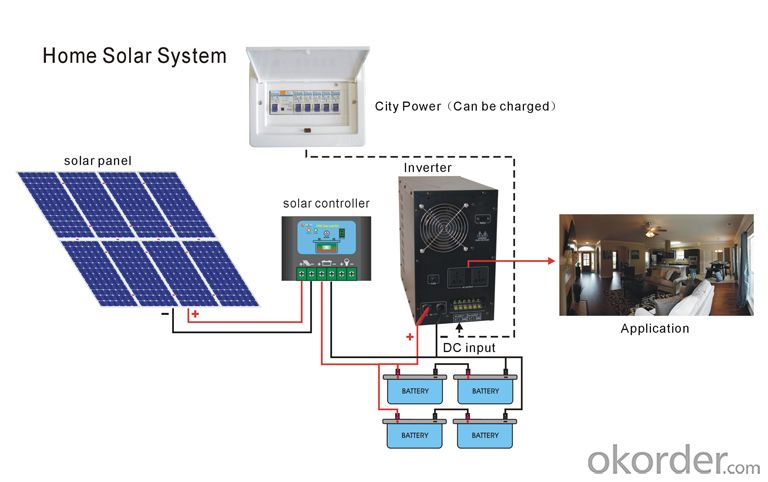
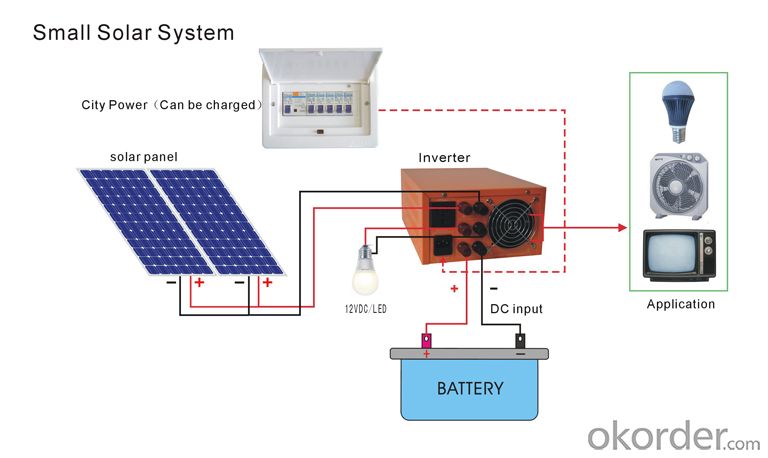
Quantuty
Quality goal:Constant innovation to meet the request of the customers. Protect the environment, provide environmental products to customer.
Quality strategy:
Quality: established high efficiency quality manager system in line with ISO9001 and ISO/TS16949.
Improvement: keeping improvement & quality guarantee.
Efficiency: delivery on time, complete the agreed events with the customers on time.
Service: focus on customers, provide the service and technology support on time.
FAQ
1. How long will my inquiry get response?
Your inquiry related to our products or prices will be replied within 24 hours.
2. Can I get professional service and suggestion?
Well-trained and experienced staffs to answer all your questions in fluent English.
3. Do you accept OEM or customized design?
OEM & ODM, any your customized lightings we can help you to design and put into product.
4. What if I need specific design?
Distributorship are offered for your unique design and some our current models.
- Q:Can a solar energy system be installed on a metal roof?
- Certainly! It is indeed possible to install a solar energy system on a metal roof. In fact, metal roofs are often deemed as an excellent choice for solar panel installation due to their strength and ease of installation. The stability and security provided by the metal roof make it an ideal surface for mounting the solar panels. Furthermore, the sleek design of the panels can enhance the appearance of the roof. Moreover, metal roofs are typically more resilient to harsh weather conditions like hail, wind, and snow, which can offer additional protection and extend the lifespan of the solar energy system. With proper installation techniques and mounting hardware, a solar energy system can efficiently and effectively produce renewable energy on a metal roof.
- Q:How do solar energy systems contribute to reducing the risk of electrical fires compared to traditional power generation methods?
- Solar energy systems contribute to reducing the risk of electrical fires compared to traditional power generation methods in several ways. Firstly, solar panels generate electricity through a direct current (DC) system, which is inherently safer than the alternating current (AC) system used in traditional power generation. DC systems have lower voltage and are less prone to electrical arcing and short circuits that can cause fires. Additionally, solar energy systems do not rely on combustible fuels like coal or natural gas, eliminating the risk of fire hazards associated with these conventional power generation methods. Solar panels are made of non-flammable materials, reducing the likelihood of fire caused by sparks or overheating. Moreover, solar energy systems have fewer electrical components and wiring connections compared to traditional power generation methods, minimizing the potential points of failure and reducing the risk of electrical fires. With no moving parts, solar panels require less maintenance and have a lower chance of electrical malfunctions that could lead to fires. Overall, the use of solar energy systems significantly decreases the risk of electrical fires, making them a safer alternative to traditional power generation methods.
- Q:How do solar energy systems impact energy policy and regulation?
- Solar energy systems have a significant impact on energy policy and regulation by promoting the adoption of renewable energy sources and reducing dependence on fossil fuels. Governments and regulatory bodies often implement policies and regulations that incentivize the installation and use of solar energy systems, such as feed-in tariffs or tax credits. This helps to accelerate the transition to clean energy and achieve sustainability goals. Additionally, solar energy systems can influence the development of grid infrastructure and energy storage technologies to accommodate the intermittent nature of solar power, leading to a more resilient and decentralized energy system.
- Q:Are solar energy systems scalable for different energy needs?
- Yes, solar energy systems are scalable for different energy needs. The size and capacity of solar installations can be adjusted to meet various energy requirements, from small residential systems to large-scale commercial installations. This scalability is possible due to the modular nature of solar panels, allowing for easy expansion or reduction of the system's capacity based on the energy demands. Additionally, advancements in solar technology and energy storage systems have further enhanced the scalability of solar energy, making it a versatile and adaptable solution for different energy needs.
- Q:Can solar energy systems be used to power an entire household?
- Yes, solar energy systems can be used to power an entire household. By installing enough solar panels, a household can generate enough electricity to meet its energy needs. Additionally, with the use of energy storage systems, excess energy can be stored and used during times when the sun is not shining. Overall, solar energy systems have the potential to provide a reliable and sustainable source of power for households.
- Q:Can a solar energy system be used to power outdoor lighting?
- Yes, a solar energy system can definitely be used to power outdoor lighting. In fact, solar-powered outdoor lighting systems are becoming increasingly popular due to their numerous benefits. Solar panels installed on rooftops or in open areas capture sunlight and convert it into electricity, which can be stored in batteries for use during the night or on cloudy days. This stored energy can then be used to power outdoor lighting fixtures such as streetlights, garden lights, pathway lights, and even security lights. Solar-powered outdoor lighting systems are cost-effective, environmentally friendly, and do not require any electrical wiring, making them easy to install and maintain. Additionally, they offer the advantage of being independent of the grid, ensuring uninterrupted lighting even during power outages. Overall, solar energy systems are a highly efficient and sustainable solution for powering outdoor lighting.
- Q:Can solar energy systems be used in powering wineries or breweries?
- Yes, solar energy systems can definitely be used to power wineries or breweries. In fact, many wineries and breweries around the world have already embraced solar power as a sustainable and cost-effective energy source. Solar energy systems can be installed on the rooftops or surrounding areas of these facilities to capture sunlight and convert it into electricity. The electricity generated from solar panels can be used to power various aspects of winemaking or brewing operations, such as lighting, heating, cooling, and machinery. It can also be used to run pumps for irrigation or ventilation systems, which are crucial for maintaining the ideal conditions for the fermentation process. Using solar power not only helps wineries and breweries reduce their carbon footprint and dependence on fossil fuels but also offers several financial benefits. Solar energy systems can significantly lower utility bills, as wineries and breweries often require a substantial amount of electricity to operate. Additionally, some regions offer incentives and tax credits for businesses that adopt renewable energy sources like solar power. Moreover, solar energy systems can provide wineries and breweries with energy independence and reliability. They can generate electricity even during power outages or during peak demand periods when electricity prices are higher. This ensures uninterrupted production and reduces the vulnerability of these facilities to energy shortages or price fluctuations. Overall, solar energy systems have demonstrated their effectiveness in powering wineries and breweries, offering environmental, financial, and operational advantages. By harnessing the power of the sun, these industries can contribute to a more sustainable future while enjoying the numerous benefits of solar energy.
- Q:What is the ideal direction for solar panels to face?
- The ideal direction for solar panels to face is south, as it allows them to receive the maximum amount of sunlight throughout the day.
- Q:How do solar energy systems perform in different weather conditions?
- Solar energy systems can still generate electricity on cloudy or rainy days, although their performance may be reduced compared to sunny days. However, extreme weather conditions such as heavy snow or hail can have a more significant impact on their efficiency. Overall, solar energy systems are designed to perform well in various weather conditions, but their output may vary depending on the level of sunshine available.
- Q:Can solar energy systems be used for powering space exploration missions?
- Yes, solar energy systems can be used for powering space exploration missions. Solar panels are commonly used in space missions to generate electricity by converting sunlight into usable energy. These panels are lightweight, reliable, and can provide a continuous power source in space, making them ideal for long-duration missions. Additionally, solar energy is abundant in space and can be harnessed even in the most remote locations, reducing the need for heavy and limited fuel supplies.
1. Manufacturer Overview |
|
|---|---|
| Location | |
| Year Established | |
| Annual Output Value | |
| Main Markets | |
| Company Certifications | |
2. Manufacturer Certificates |
|
|---|---|
| a) Certification Name | |
| Range | |
| Reference | |
| Validity Period | |
3. Manufacturer Capability |
|
|---|---|
| a)Trade Capacity | |
| Nearest Port | |
| Export Percentage | |
| No.of Employees in Trade Department | |
| Language Spoken: | |
| b)Factory Information | |
| Factory Size: | |
| No. of Production Lines | |
| Contract Manufacturing | |
| Product Price Range | |
Send your message to us
Solar Lighting System - DC >10W Solar Lighting System
- Loading Port:
- Guangzhou
- Payment Terms:
- TT OR LC
- Min Order Qty:
- 50 set
- Supply Capability:
- 10000 set/month
OKorder Service Pledge
OKorder Financial Service
Similar products
New products
Hot products
Related keywords
